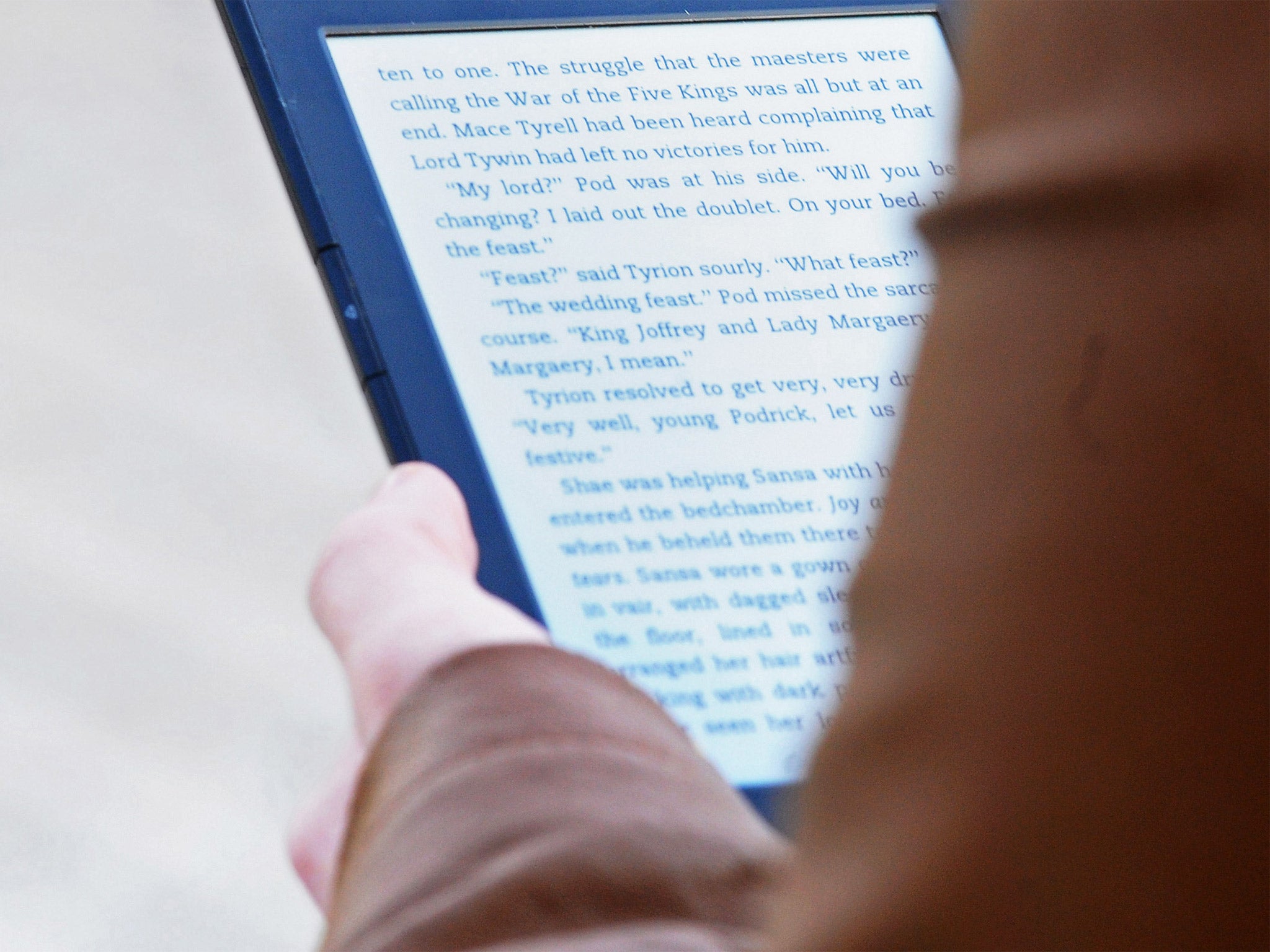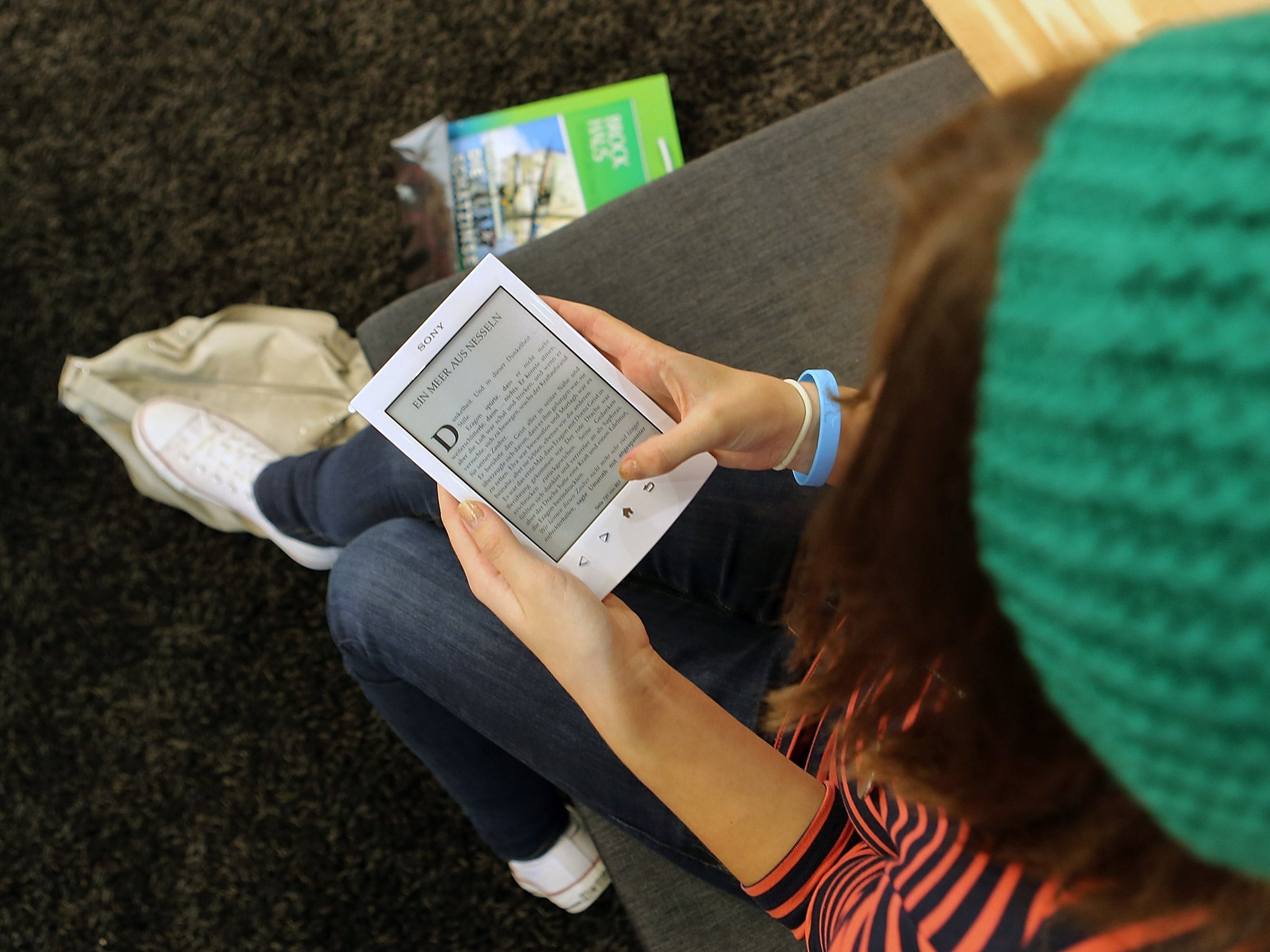Children’s reading ‘improves faster with ebooks’
Study shows remarkable improvement in reading ability amongst boys

Your support helps us to tell the story
From reproductive rights to climate change to Big Tech, The Independent is on the ground when the story is developing. Whether it's investigating the financials of Elon Musk's pro-Trump PAC or producing our latest documentary, 'The A Word', which shines a light on the American women fighting for reproductive rights, we know how important it is to parse out the facts from the messaging.
At such a critical moment in US history, we need reporters on the ground. Your donation allows us to keep sending journalists to speak to both sides of the story.
The Independent is trusted by Americans across the entire political spectrum. And unlike many other quality news outlets, we choose not to lock Americans out of our reporting and analysis with paywalls. We believe quality journalism should be available to everyone, paid for by those who can afford it.
Your support makes all the difference.Researchers have come up with a solution to one of the thorniest problems in the education world - the poor reading standard of boys,
A study for the National Literacy Trust shows a remarkable improvement in reading ability amongst boys who do their reading online through ebooks.
The researchers studied the boys’ reading performance for an average of 4.2 months - and found that their reading age improved by 8.4 months during that period.
Girls also improved at a better rate than the norm - showing a 7.2 month improvement.
The study went on to show the percentage of boys who found reading difficult halved from 28 per cent to 15.9 per cent.
In addition, twice as many boys said at the end of the period that reading was “cool” - 66.5 per cent compared with 34.4 per cent prior to the start of the study.
The report concludes: “Finding ways to help children to enjoy reading more and motivating them to read more often has the potential to address longstanding achievement gaps.”
Asked why they preferred to read on screen, one pupil said: “When you read on paper, it’s a bit boring, unless it’s something you’re really into and you might get into it.
“On a tablet, it feels more interesting - it reminds me of when I’m texting someone and I don’t like reading so it makes it a bit more interesting.”
Another added: “I make the text bigger. I don’t like reading books with small text which is why I don’t read a lot of books.
“You can zoom in ... if you struggle with reading in a book your vision goes but on a screen you can scroll down how you’d like.
“The way the screen is lit can make it easier to read - and you can change the colour of the back.”
The study covered nearly 500 eight to 16-year-olds in 40 schools - and ran from between two to eight months.

A survey of 30,032 children alongside the study showed 88.6 per cent said they read using technology. It noted that the number reading ebooks tripled between 2010 and 2014. In addition, 75.2 per cent said they enjoyed reading using technology compared with 56.7 per cent who said they enjoyed reading on paper.
“The study clearly shows that the impact ebooks can have on reading enjoyment, particularly for boys, goes well beyond the novelty of a new reading format,” said Irene Picton, research manager at the National Literacy Trust.
“Our research found that technology can transform children’s attitudes towards reading. Being seen reading on a tablet or smart phone is different to being seen with a book and this influences how much time pupils spend reading.”
One teacher who responded to the survey said: “23 out of 24 pupils made progress, some rapid and some steady. It has also been vital in encouraging underachieving boys to develop a love of reading.
“The stigma of reading has been removed and the pupils are actually sharing their experiences with their friends across the school and creating somewhat of a ‘reading frenzy’ which is fantastic.”
The gap between the performance of boys and girls can be seen as early as seven - and successive governments have ploughed millions of pounds into trying to solve the problem of boys’ writing and reading standards, including launching a “boys into books” scheme which introduced more fact-based books to read into the classroom and a “reading champions” scheme in which Premier League footballers spoke of their favourite books.
The research, titled The Impact of ebooks on the Reading Motivation and Reading Skills of Young People: a study of schools using RM Books, is, says the National Literacy Trust, one of the first and largest studies to explore the effect ebooks have on reading habits among children.
Join our commenting forum
Join thought-provoking conversations, follow other Independent readers and see their replies
Comments